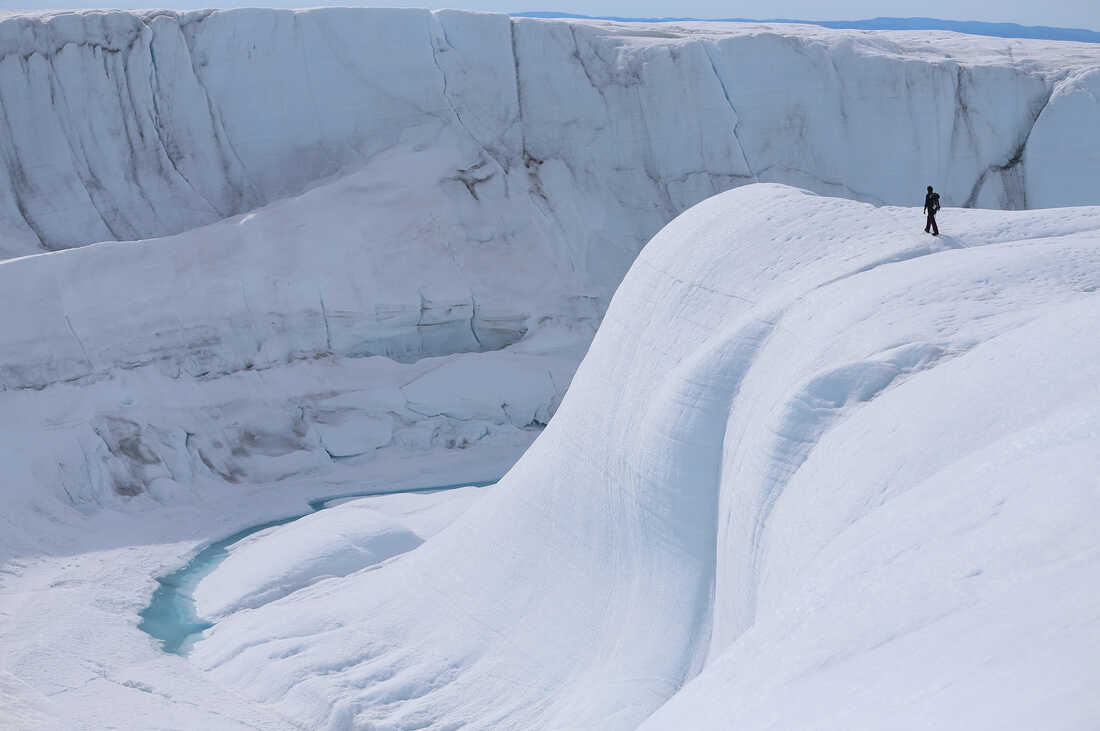RED ALERT: FOR THE FIRST TIME IN RECORDED HISTORY, IT RAINED ON GREENLAND'S ICE SHEET
VAST AREAS OF GREENLAND'S ICE WERE WASHED AWAY BY UNPRECEDENTED RAINFALL.
Rain fell at the highest point of Greenland's ice sheet for the first time since scientists began recording data there, the latest example of how climate change is affecting every region of the globe.
Rain poured for many hours on a place 10,551 feet above sea level on Aug. 14, according to the US National Snow and Ice Data Center, an extraordinary event for a location that rarely experiences temperatures above freezing.
It was also the latest date in the year that scientists at the National Science Foundation's Summit Station had ever recorded temperatures above freezing.
The rain fell during the most recent "melt event" on the ice sheet, when temperatures reached a point where the thick ice began to melt.
Extreme weather occurrences have become increasingly common as a result of rising global temperatures caused by climate change. Greenland's ice sheet is no different.
In July, there were two big melt occurrences. Melt episodes on the ice sheet were also observed in 2019, 2012, and 1995, according to scientists. "Ice cores indicate that melting has been absent since an occurrence in the late 1800s," according to the center.
The August rains triggered melting events similar to those seen in July, when "a strong low pressure system over Baffin Island and high air pressure southeast of Greenland" drove warm air and moisture north, according to the scientists.
Greenland's ice sheet is around 656,000 square miles of glacial land ice, covering the majority of the country. It is one of only two on Earth, the other being in Antarctica.
Climate change is causing the Arctic to warm twice as fast as the rest of the earth. Since the mid-nineteenth century, when industrialisation and fossil fuel use increased, global average temperatures have risen by around 1 degree Celsius, or nearly 2 degrees Fahrenheit. So far, the Arctic has warmed by nearly 2 degrees Celsius.
Greenland and Antarctica have lost enough ice to fill Lake Michigan over the previous 16 years as a result of rising global temperatures, according to a 2020 study. The melting has ramifications for people living in areas other than Greenland. Sea level rise is being aided by ice loss, putting coastal cities around the world at risk of disaster.














Post a Comment